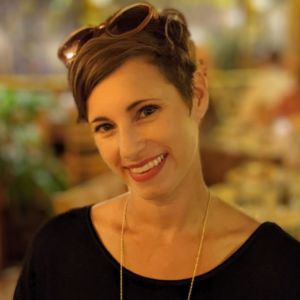Mary Nicholson: Difference between revisions
JStallings (talk | contribs) No edit summary |
JStallings (talk | contribs) No edit summary |
||
| Line 6: | Line 6: | ||
|House=STEM House | |House=STEM House | ||
|Email=mnicholson@tsas.org | |Email=mnicholson@tsas.org | ||
|Joined=2017 | |||
|Education=Bachelor of Science in Biological Sciences from Loyola University New Orleans</br>Master of Science in Biology from the University of New Orleans | |Education=Bachelor of Science in Biological Sciences from Loyola University New Orleans</br>Master of Science in Biology from the University of New Orleans | ||
|AboutMe=I am a lover of science, avid reader, gardener, and swimmer. I have taught every age group in some capacity from preschool to college level courses in multiple different cities. I adore animals, and live here in Tulsa with my husband, 3 dogs, 2 cats, and 5 chickens. | |AboutMe=I am a lover of science, avid reader, gardener, and swimmer. I have taught every age group in some capacity from preschool to college level courses in multiple different cities. I adore animals, and live here in Tulsa with my husband, 3 dogs, 2 cats, and 5 chickens. | ||
|WhyTeach=I teach science because I believe that my students have the ability to positively impact the future of this country, but for that to be true they must have a foundational knowledge of how the world around them works and to be critical thinkers who can make their own decisions. | |||
}} | }} | ||
Latest revision as of 00:42, 10 January 2022
 | |
| Department | Science |
|---|---|
| House | STEM |
| Contact | mnicholson@tsas.org |
| Joined | 2017 |
| Education |
Bachelor of Science in Biological Sciences from Loyola University New Orleans Master of Science in Biology from the University of New Orleans |
| Why I teach | I teach science because I believe that my students have the ability to positively impact the future of this country, but for that to be true they must have a foundational knowledge of how the world around them works and to be critical thinkers who can make their own decisions. |
| About me | I am a lover of science, avid reader, gardener, and swimmer. I have taught every age group in some capacity from preschool to college level courses in multiple different cities. I adore animals, and live here in Tulsa with my husband, 3 dogs, 2 cats, and 5 chickens. |
Biology
Biology is a laboratory science course in which students investigate a wide range of topics including cells, cell transport and reproduction, genetics, DNA, evolution, and ecology. Students will have an opportunity to participate in various laboratory activities and dissections throughout the course.
Career & College House
STEM
Fine Arts
Liberal Arts
Health and the Human Body
"Health and the Human Body" is a science elective that delves into the complexities of human health and how the environment and our own anatomy and physiology intersect and lead to either health or disease. Through lectures, hands-on activities, research, and engaging discussions, students will explore topics such as nutrition, genetics, and infectious disease transmittance and prevention.
Intro to Psychology
This course introduces students to the study of the human mind and behavior. Students will strive to better understand how we think and act based on intrinsic and extrinsic forces. Topics exploring the basic principles and theories of psychology including personality, the brain, consciousness, learning, and memory will be covered.
AP Biology
Upper level, yearlong course that builds upon foundations of Biology 1 by exploring content to greater depth and wider extent of cellular processes, biochemistry, technology and population ecology. Emphasis on analysis, writing and mathematical applications.
- Senior course — juniors only with teacher permission
Ecology Around Us
In this course, students will explore the interactions of organisms with each other and their environment at the population, community, and ecosystem levels. The focus will be on using case studies, labs, and field techniques to observe the diversity of organisms around us.
Science in Fiction
In this course, students will explore the role that science plays in works of fiction. They will analyze both accurate and inaccurate portrayals of science concepts in literature and film to deepen their understanding of concepts such as genetics, parasitism, and disease. This course will include discussion, research, and labs.
Capstones